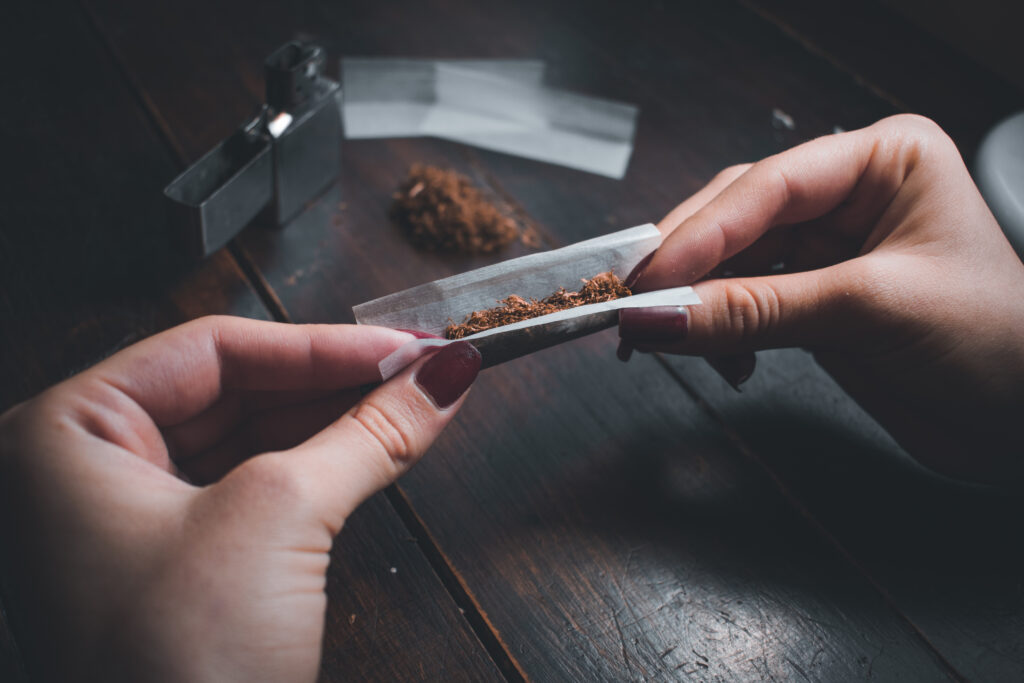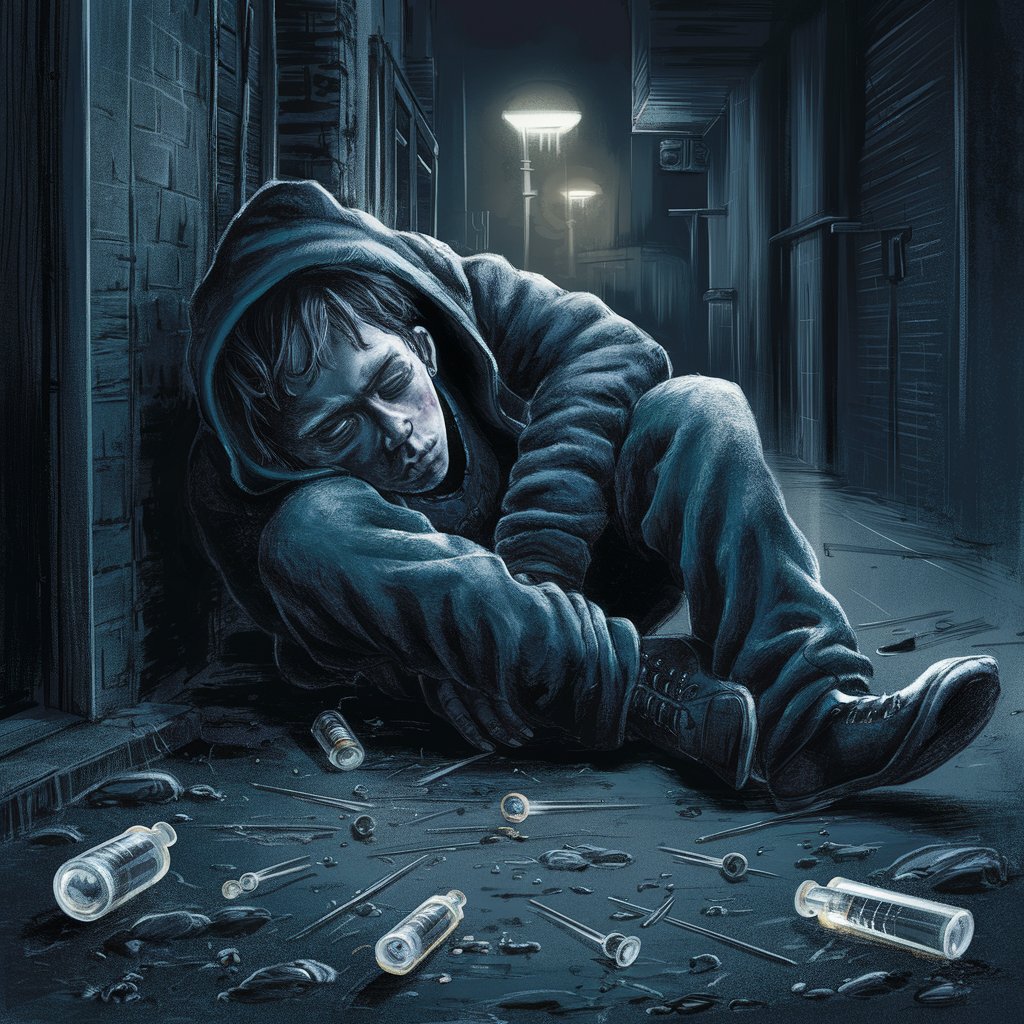Understanding Substance Abuse: Signs and Symptoms
Understanding Substance Abuse: Signs and Symptoms
Read Disclaimer
Discover the signs and symptoms of substance abuse, understand its impact on mental and physical health, and learn how to support those struggling with addiction—comprehensive insights and resources for early intervention and treatment.
Introduction
Millions of people worldwide are impacted by the complicated and multidimensional problem of substance misuse. In order to identify and help those who are battling with addiction early on, it is essential to recognize the warning signs and symptoms of substance misuse. This blog seeks to provide you a thorough understanding of substance misuse, including its warning signs and symptoms as well as what you can do to support a loved one who might be struggling.

What is Substance Abuse?
The use of psychoactive substances, such as alcohol and illegal narcotics, in a detrimental or dangerous way is what defines substance abuse, commonly referred to as substance use disorder (SUD). It is characterized by a pattern of behaviors that includes growing tolerance or withdrawal symptoms, an inability to control usage, and continuous use despite undesirable outcomes.
Significant health issues, interpersonal and social problems, as well as financial and legal challenges, can result from substance abuse. It is crucial to remember that substance abuse is a medical illness that has to be treated appropriately and supported.
Commonly Abused Substances
Substance abuse encompasses a wide range of substances, each with its own unique effects, risks, and challenges. Here, we elaborate on some of the most commonly abused substances:
1. Alcohol
One of the drugs that is most commonly abused globally is alcohol. It is widely available because it is a chemical that is legal in most places. Even though it’s legal, abusing alcohol can result in major health problems like:
– Liver Disease: Cirrhosis, fatty liver disease, hepatitis, and liver failure can all result from long-term alcohol usage.
– Cardiovascular Issues: Drinking too much alcohol increases the risk of heart attack and stroke, high blood pressure, cardiomyopathy, and arrhythmias.
– Mental Health Disorders: Alcohol misuse is frequently linked to mental health conditions like anxiety, depression, and a higher risk of suicide. Additionally, it may result in alcohol addiction and dependence, which exacerbates mental health issues.

2. Prescription Drugs
Abuse of prescription drugs refers to the improper use of drugs meant for proper medical use. Prescription medicines that are often abused include:
– Opioids: Prescription drugs for pain management include morphine, hydrocodone (Vicodin), and oxycodone (OxyContin). But if overused, they can cause overdose, dependence, and even death because they are extremely addictive.
– Stimulants: Narcolepsy and attention deficit hyperactivity disorder (ADHD) are treated with medications like Adderall and Ritalin. Abuse of these stimulants can result in severe cases of heart failure or stroke, as well as elevated heart rate, high blood pressure, anxiety, and paranoia.
– Benzodiazepines: Drugs for anxiety and sleep disorders such as Ativan (lorazepam), Valium (diazepam), and Xanax (alprazolam) are prescribed. If misused, they can lead to overdose, withdrawal symptoms, and dependence, particularly when mixed with other drugs like alcohol.
3. Illicit Drugs
Substances that are prohibited from production, distribution, or consumption are known as illicit drugs. These medicines are extremely addictive and deadly, and their medical usage has not been approved. Often misused illegal substances consist of:
– Marijuana: Despite being more widely accepted for both medical and recreational purposes, marijuana misuse is still a problem in some places. Excessive dosages or prolonged use might worsen mental health conditions, impair cognitive function, and cause dependence.
– Cocaine: A potent stimulant that raises the brain’s dopamine levels and produces extreme bliss. Heart attacks, strokes, respiratory failure, and serious mental health problems including hallucinations and paranoia can all be brought on by it.
– Heroin: An opioid that is made from morphine, heroin has a high potential for overdose and death and is extremely addictive. Significant withdrawal symptoms, infectious infections from sharing needles, and respiratory depression are just a few of the serious health problems it can cause.
– Methamphetamines: Extremely addictive stimulants that raise the risk of infectious infections, weight loss, skin rashes, and serious dental issues (“meth mouth”). Prolonged usage may result in serious mental health issues and cognitive decline.
– Hallucinogens: Substances that affect perception, mood, and mental processes include LSD, PCP, and psilocybin (magic mushrooms). They may result in risky actions, enduring psychological consequences, and in rare instances, chronic psychosis.

4. Tobacco/Nicotine
Cigars, e-cigarettes, and other tobacco products contain nicotine, a highly addictive chemical. Despite being legal, nicotine has a number of negative health effects, such as:
– Respiratory Problems: Lung cancer, emphysema, and chronic bronchitis can all be brought on by tobacco smoking. Nonsmokers are also at risk from secondhand smoke exposure.
– Cardiovascular Issues: Nicotine raises blood pressure and heart rate, which exacerbates peripheral artery disease, heart disease, and stroke.
– Cancer: Smoking is a major risk factor for a number of malignancies, including those of the mouth, throat, esophagus, bladder, and lungs.
– Addiction: Users find it difficult to give up nicotine due to its strong addictive properties. Symptoms of withdrawal from withdrawal include agitation, anxiety, trouble focusing, and intense cravings.
Recognizing and treating drug misuse disorders can be made easier with an understanding of these often abused substances and the risks that come with them. In order to stop abuse and give victims of abuse appropriate support and therapy, awareness and education are essential.
Signs and Symptoms of Substance Abuse
Substance abuse manifests in various ways, and its signs and symptoms can differ depending on the type of substance used, how often and how long it has been used, and the individual’s circumstances. However, there are common indicators across physical, behavioral, and psychological domains that can suggest a substance abuse problem.
Physical Signs
1. Changes in Appearance
– Notable Weight Loss or Gain: People who battle drug addiction may have notable fluctuations in their weight. While drugs like alcohol may cause weight gain due to increased calorie intake and metabolic changes, stimulants like cocaine and methamphetamines can cause rapid weight reduction.
– Poor Hygiene: When substance abuse takes precedence, personal hygiene routines like washing hands, brushing teeth, and changing clothes are frequently neglected.
– Odd Body scents: Certain substances have peculiar body scents. For instance, excessive alcohol intake may result in an odorous alcohol on the breath and body.
– Bloodshot Eyes: A variety of drugs can irritate or alter blood flow, resulting in red, bloodshot eyes. This can be more apparent when using alcohol, marijuana, and other stimulants.

2. Health Issues
– Recurrent Illnesses: Abuse of substances can impair immunity, leaving people more vulnerable to infections, colds, and other ailments.
– Unexplained Injuries: People may suffer injuries as a result of dangerous behavior or because their judgment and coordination are compromised while under the influence.
– Track Marks on Arms: Individuals who inject drugs intravenously may have bruising or puncture marks on their arms or other injection sites.
– General Decline in Physical Health: Long-term substance usage can cause a general decline in health, which can show up as chronic exhaustion, breathing difficulties, stomach troubles, and other long-term medical concerns.
3. Withdrawal Symptoms
– Nausea and vomiting: During substance withdrawal, particularly from alcohol, opioids, and stimulants, these symptoms are common.
– Sweating and shaking: These are common signs of benzodiazepine and alcohol withdrawal.
– Seizures: If a person has severe withdrawal from drugs like alcohol or benzodiazepines, they may experience seizures, which call for emergency medical assistance.
Behavioral Signs
1. Neglecting Responsibilities
– Work, School, and Family Obligations: People who use drugs may find it difficult to fulfill their obligations since substance use takes up time and energy. This may lead to missed deadlines, subpar work or academic performance, and neglect of family responsibilities.
2. Social Withdrawal
– Isolation: Addicts may distance themselves from friends and family in an effort to spend more time alone themselves or with other drug users.
– Loss of Interest: As substance abuse takes precedence, once-enjoyable pastimes and activities may lose their appeal.

3. Financial Problems
– Unexplained Need for Money: Because substance misuse can be costly, people may repeatedly beg for money without providing a good explanation.
– Stealing or Borrowing: People who are desperate may turn to stealing or borrowing money to support their drug usage.
Persistent substance addiction can result in serious financial difficulties, such as debt, bankruptcy, and asset loss.
4. Risky Behavior
– Risky Behaviors: There is a greater chance of grave repercussions when one engages in risky sexual behaviors, driving while intoxicated, or stealing or drug selling, among other illegal actions.
– Impaired Judgment: Substance use can have an adverse influence on judgment and decision-making, which can put one in risky or even fatal circumstances.
5. Changes in Social Circles
– New Friendships: People may begin hanging out with new acquaintances who use drugs or alcohol, frequently putting distance between them and their long-time pals who abstain.
– Socializing in Different Environments: They may start going to new venues linked to substance use, like clubs, bars, or areas where drugs are known to be used.
Psychological Signs
1. Mood Swings
– Abrupt and Severe Mood fluctuations: People may go through abrupt and severe mood fluctuations that range from intense happiness to profound sadness. These changes may come on suddenly and suddenly strong.
2. Anxiety and Paranoia
– Elevated Anxiety: Abuse of substances can make anxiety worse, which might result in frequent or severe anxiety attacks.
– Paranoia and distrustful Behavior: Certain drugs can cause paranoia, which makes people unnecessarily scared or distrustful of others.

3. Loss of Motivation
– Lack of Interest in Goals: Substance abuse can diminish motivation and interest in future goals, leading to decreased productivity and a sense of apathy.
– Decreased Productivity: Once easy Tasks may become difficult or neglected entirely.
4. Cognitive Impairment
– Difficulty Concentrating: Substances can impair cognitive functions, making it hard to focus on tasks or conversations.
– Memory Problems: Short-term and long-term memory can be affected, leading to forgetfulness or blackouts.
– Impaired Judgment : Decision-making skills are often compromised, resulting in poor choices and risky behavior.
5. Euphoria and Hyperactivity
– Periods of Abnormal Hyperactivity: Some drugs, particularly stimulants like cocaine or methamphetamines, can produce erratic energy spikes and periods of hyperactivity.
– Talkativeness and Euphoria: Following drug use, people may exhibit atypically high levels of talkativeness as well as exaggerated, out-of-control sensations of elation and excitement.
Early intervention and support for substance abuse depend on the recognition of these symptoms and indicators. You can assist persons impacted by substance misuse and direct them toward suitable treatment and recovery programs by being aware of these signs.
Recognizing the Problem
Early recognition of substance abuse is essential for effective intervention and treatment. The sooner a problem is identified, the better the chances of a successful recovery. If you suspect that someone you know is struggling with substance abuse, consider the following steps to address the issue:
1. Educate Yourself
– Recognize the Symptoms and Signs: Recognizing the typical markers of substance abuse is the first step. This entails identifying behavioral (such as shirking obligations and social disengagement), psychological (such as mood swings and cognitive impairment), and physical (such as changes in appearance and health difficulties) indicators. Acquiring knowledge about the particular substances in question and their effects can also aid in recognizing more accurate indicators of abuse.
– Studying Substance Abuse: There are several sites that offer helpful information regarding substance misuse, its impacts, and treatment alternatives. These resources include books, articles from the internet, and support groups. Gaining knowledge will help you approach the situation with more empathy and understanding.
2. Observe Behavior
– Pay Attention to Changes: Observe any alterations in the person’s demeanor, mannerisms, or psychological condition. Keep an eye out for symptoms including conspicuous weight gain or loss, unhygienic habits, recurrent diseases, social disengagement, money difficulties, and reckless conduct. You can spot signs of substance usage by keeping an eye out for patterns over time.
– Record Particular Incidents: Maintaining a journal of particular occurrences and actions might give you specific instances to refer to while talking to the individual or getting expert assistance. Dates, behavioral descriptions, and any obvious changes in behavior—physical or psychological—can all be included in this documentation.
3. Talk to the Person
– Express Your Concerns: Be supportive and nonjudgmental when you approach the person. Pick a discreet, calm place to have an open discussion. Inform them that you are concerned for their wellbeing and that you have observed some behaviors that worry you.
Employ “I” Statements: To prevent coming out as accusing, express your worries using “I” phrases. Say something like, “I’m worried about you because I’ve noticed you seem really stressed lately,” as opposed to, “You have a drug problem.”
– Pay Close Attention: Let the individual finish speaking without interjecting. Active listening demonstrates your concern and sincere interest in their well. Steer clear of criticism and assigning blame as this might make people defensive and resistant.
4. Seek Professional Help
– Promote Professional Assistance: Advise the individual to consult a mental health, addiction, or healthcare professional for assistance. Emphasize that getting help is a show of strength rather than weakness and that substance misuse is a medical disease that needs to be treated by a professional.
– Provide Resources: Provide contact details for nearby hotlines, support groups, and treatment facilities. If they are eager to ask for assistance but are unclear of where to begin, help them set up appointments or locate relevant resources.
– Involve Trusted People: If the person is unwilling to ask for assistance, you might want to attempt enlisting the support and encouragement of other family members or trusted friends.
5. Offer Support
– Have patience and understanding: The road to recovery from substance misuse is a difficult one that takes time. As the person finds their way back to wellness, show them your patience and understanding. Relapses can happen, therefore it’s critical to provide ongoing support instead of passing judgment.
Encourage Healthy Habits: Help the individual take up pastimes and hobbies that don’t include substance use, as well as healthy habits like eating a balanced diet and getting frequent exercise.
Participate in support groups as a group: If suitable, think about going to counseling sessions or support groups together. This can give them even more motivation and demonstrate your commitment to their rehabilitation.
– Maintain Boundaries: It’s critical to uphold appropriate boundaries in addition to providing assistance. Steer clear of encouraging actions that can exacerbate the substance misuse issue while also attending to your own health.
Early detection of substance misuse and proactive action to address it can greatly increase the likelihood of an effective intervention and complete recovery. Through self-education, behavior observation, candid and encouraging dialogue, professional assistance, and continued support, you may make a significant difference in someone’s ability to overcome substance misuse and have a better, more satisfying life.
Getting Help
It’s critical to get help as soon as possible if you or someone you love is experiencing substance addiction problems. Early intervention can increase the likelihood of recovery and result in a happier, healthier life. Many resources are available to assist people in their quest to overcome substance abuse:
1. Healthcare Providers
– Primary Care Physicians: A excellent place to start is with your primary care physician. They can address your worries, provide a preliminary evaluation, and, if necessary, recommend you to experts. They can also handle any medical issues resulting from substance addiction and keep an eye on your general health.
Psychiatrists are medical professionals with a focus on mental health, which includes substance abuse diseases. They are qualified to identify and manage co-occurring mental health issues, which frequently accompany substance addiction, including bipolar disorder, anxiety, and depression. Medication can also be prescribed by psychiatrists to assist control cravings and withdrawal symptoms.
Addiction Specialists: These medical professionals have received specific training in the management of drug abuse disorders. They are capable of creating all-encompassing treatment programs that combine social, psychological, and medical therapies and are customized to meet the unique needs of the patient.
2. Counseling and Therapy
– Licensed Counselors: Qualified counselors offer a private, secure setting for delving into the underlying problems that lead to substance usage. They can aid in the development of coping mechanisms, enhance emotional control, and foster stronger interpersonal bonds.
– Individual Therapy: Personal concerns including trauma, stress, and emotional anguish that are associated with substance misuse can be addressed in one-on-one therapy sessions with a certified therapist. Evidence-based techniques such as dialectical behavior therapy (DBT), cognitive-behavioral therapy (CBT), and others are frequently employed.
– Group Therapy: Under the supervision of a therapist, a number of individuals discuss their experiences and provide support to one another during group therapy sessions. This environment helps lessen feelings of loneliness and foster a sense of community.
– Family Therapy : Substance abuse affects not only the individual but also their family. Family therapy can help address family dynamics, improve communication, and rebuild trust and support within the family unit.
3. Support Groups
One well-known support organization for people battling alcohol addiction is Alcoholics Anonymous (AA). It provides a 12-step program aimed at assisting participants in becoming and staying sober. There are both in-person and virtual meetings that offer a community of support and shared experiences.
– Narcotics Anonymous (NA): A support organization for people battling drug addiction, NA is comparable to Alcoholics Anonymous (AA). It also offers a secure forum for participants to discuss their accomplishments and challenges while adhering to a 12-step program.
– Other Peer Support Groups: There are also other support groups, like SMART Recovery, Women for Sobriety, and Celebrate Recovery, that are geared toward particular drugs or populations. These organizations provide a range of methods and ideologies so that people can pick a group that speaks to them.
4. Rehabilitation Programs
– Inpatient Rehab Programs: Also known as residential rehab programs, inpatient rehab offers a supervised living environment where patients spend a predetermined amount of time in the treatment center, usually 30 to 90 days or more. In addition to individual and group therapy, medical detoxification, educational workshops, and relapse prevention techniques, these programs provide intense treatment.
– Outpatient Rehab Programs: These enable patients to receive therapy at a rehab facility while continuing to live at home. Those who need ongoing help after completing an inpatient treatment or those with lesser substance use disorders can consider this option. Partial hospitalization programs (PHPs) and intensive outpatient programs (IOPs) are two examples of outpatient programs that differ in intensity.
– Specialized Programs : Some rehab facilities offer specialized programs for specific populations, such as adolescents, women, LGBTQ+ individuals, or those with co-occurring mental health disorders. These programs are tailored to address the unique needs and challenges of these groups.
Additional Resources:
– Hotlines: Local and national hotlines offer information about resources for substance misuse as well as emergency support. The National Suicide Prevention Lifeline and the Substance Abuse and Mental Health Services Administration (SAMHSA) National Helpline are two examples.
– Online Resources: Links to local resources, information, and support can be found on websites and in online forums. Beneficiary organizations that offer useful information and directories of treatment providers include SAMHSA, the National Institute on Drug Abuse (NIDA), and other nonprofit organizations.
Seeking help for substance abuse is a courageous step. Utilizing these resources can provide the support, guidance, and treatment necessary to overcome addiction and build a healthier future. Remember, recovery is a journey, and professional help and community support can make a significant difference in achieving long-term sobriety.
Conclusion
All around the world, substance abuse is a widespread and complex problem that has an impact on people, families, and communities. Early intervention and successful treatment depend on the ability to recognize the telltale signs and symptoms of substance abuse. Understanding the behavioral, psychological, and physical signs allows us to recognize individuals who require assistance and offer the appropriate support.
Although recovering from substance misuse is a difficult process, it is still achievable with the correct tools and support networks in place. Rehab programs, support groups, counseling and therapy services, and medical professionals are all essential to this process. It is crucial to treat those who are battling drug misuse with tolerance, kindness, and understanding. Providing a kind and understanding atmosphere might greatly influence someone’s decision to pursue
Ultimately, substance abuse is a medical condition that requires comprehensive treatment and ongoing support. By educating ourselves and others about the complexities of substance abuse, we can break down the stigma associated with it and create a more supportive and understanding society. With collective effort, we can help those affected by substance abuse to achieve recovery and lead healthier, more fulfilling lives.
FAQs with Answers
1. What is substance abuse?
– Substance abuse refers to the harmful or hazardous use of psychoactive substances, including alcohol and illicit drugs, leading to addiction and negative health, social, and legal consequences.
2. What are the common signs of substance abuse?
– Common signs include changes in appearance, health issues, neglecting responsibilities, social withdrawal, financial problems, mood swings, and cognitive impairment.
3. How does substance abuse affect mental health?
– Substance abuse can exacerbate existing mental health conditions, lead to new mental health issues such as anxiety and depression, and impair cognitive function.
4. Can substance abuse be treated?
– Yes, substance abuse can be treated with a combination of medical intervention, counseling, therapy, support groups, and rehabilitation programs.
5. What is a dual diagnosis?
– Dual diagnosis refers to the co-occurrence of a substance use disorder and a mental health disorder in the same individual, requiring integrated treatment.
6. What are withdrawal symptoms?
– Withdrawal symptoms are physical and mental effects that occur when a person stops using a substance they are addicted to, such as nausea, vomiting, shaking, and anxiety.
7. How can I help a loved one struggling with substance abuse?
– Educate yourself, observe their behavior, talk to them in a supportive manner, encourage them to seek professional help, and offer ongoing support.
8. What role does therapy play in addiction recovery?
– Therapy helps address underlying issues, develop coping strategies, and provide emotional support, playing a crucial role in long-term recovery.
9. Are there different types of substance abuse treatment programs?
– Yes, treatment programs include inpatient rehab, outpatient rehab, medication-assisted treatment, counseling, and support groups.
10. What is the importance of a support network in recovery?
– A strong support network provides emotional support, accountability, and encouragement, which are essential for successful recovery.
11. How can I recognize if I have a substance abuse problem?
– If you find yourself unable to control your substance use, experiencing negative consequences, and having withdrawal symptoms, you may have a substance abuse problem.
12. What is the role of medication in addiction treatment?
– Medications can help manage withdrawal symptoms, reduce cravings, and treat co-occurring mental health conditions.
13. How does substance abuse affect physical health?
– Substance abuse can lead to serious health issues such as liver disease, cardiovascular problems, respiratory issues, and weakened immune system.
14. What are the long-term effects of substance abuse?
– Long-term effects include chronic health conditions, mental health disorders, relationship issues, financial instability, and legal problems.
15. Can substance abuse lead to legal issues?
– Yes, substance abuse can lead to legal issues such as arrests for possession, DUI, theft, and other criminal activities.

Your point of view caught my eye and was very interesting. Thanks. I have a question for you.
Your article helped me a lot, is there any more related content? Thanks!
Your point of view caught my eye and was very interesting. Thanks. I have a question for you.
Your point of view caught my eye and was very interesting. Thanks. I have a question for you. https://www.binance.com/fr-AF/register?ref=JHQQKNKN
Thanks for sharing. I read many of your blog posts, cool, your blog is very good.
I don’t think the title of your article matches the content lol. Just kidding, mainly because I had some doubts after reading the article.
I don’t think the title of your article matches the content lol. Just kidding, mainly because I had some doubts after reading the article.
Thank you for your sharing. I am worried that I lack creative ideas. It is your article that makes me full of hope. Thank you. But, I have a question, can you help me?
Your article helped me a lot, is there any more related content? Thanks!
I don’t think the title of your article matches the content lol. Just kidding, mainly because I had some doubts after reading the article.
Thank you for your sharing. I am worried that I lack creative ideas. It is your article that makes me full of hope. Thank you. But, I have a question, can you help me?
Your article helped me a lot, is there any more related content? Thanks!
Your point of view caught my eye and was very interesting. Thanks. I have a question for you.
Thank you for your sharing. I am worried that I lack creative ideas. It is your article that makes me full of hope. Thank you. But, I have a question, can you help me?
Your article helped me a lot, is there any more related content? Thanks!
Thank you for your sharing. I am worried that I lack creative ideas. It is your article that makes me full of hope. Thank you. But, I have a question, can you help me?
Thank you for your sharing. I am worried that I lack creative ideas. It is your article that makes me full of hope. Thank you. But, I have a question, can you help me?
I don’t think the title of your article matches the content lol. Just kidding, mainly because I had some doubts after reading the article. https://accounts.binance.info/register-person?ref=P9L9FQKY
I don’t think the title of your article matches the content lol. Just kidding, mainly because I had some doubts after reading the article.
Thanks for sharing. I read many of your blog posts, cool, your blog is very good.
Can you be more specific about the content of your article? After reading it, I still have some doubts. Hope you can help me. https://accounts.binance.info/register-person?ref=IHJUI7TF
mobile casino paypal
References:
http://www.89u89.com
online casino uk paypal
References:
https://www.jobs2teens.com/companies/best-paypal-online-casinos-accepting-us-players-2025/
online casino australia paypal
References:
visahr.in
online casino australia paypal
References:
https://pandahouse.lolipop.jp:443/g5/bbs/board.php?bo_table=aaa&wr_id=3103004
Your article helped me a lot, is there any more related content? Thanks!
Schnelle, sichere und transparente Ein- und Auszahlungen gehören zu den wichtigsten Kriterien bei der Wahl eines online casino. Nicht jedes online casino, das auf den ersten Blick seriös wirkt, ist es auch. Ein bestes online casino legt all diese Informationen offen – meist direkt im Footer oder im Hilfebereich. Gerade in der Welt der casino online deutschland Seiten ist Transparenz nicht selbstverständlich. Ein seriöses online casino schützt nicht nur dein Geld, sondern auch deine Daten – und schafft die Basis für faires Spielen. Ein solides casino online deutschland präsentiert alle Bedingungen sichtbar, idealerweise direkt in der Bonusübersicht. Wer ein bestes online casino sucht, sollte genau prüfen, wie fair und transparent ein Bonus wirklich ist.
Beim Willkommensbonus sind wir im Jokerstar Test ein wenig zwiegespalten. Das StarGames Casino ist in Deutschland vollständig lizenziert und wird von der Greentube Malta Limited betrieben. Klassiker wie Book of Ra oder Lucky Lady’s Charm sind genauso vertreten wie moderne Automatenspiele. Die Ersteinzahlung wird verdoppelt, und maximal sind so bis zu 100 € zu holen. Einen guten Eindruck hat im Löwen Play Test der Willkommensbonus hinterlassen. Für Neukunden gibt es einen attraktiven Willkommensbonus. Die Plattform finden wir im Merkur Casino Test übersichtlich gestaltet, sie läuft stabil auf allen Geräten und bietet eine einfache Registrierung.
References:
https://onlinegamblingcasino.s3.amazonaws.com/lemon%20casino.html
Bei einem Hobbyspieler, die ihre ersten Erfahrungen im Online Casino sammeln möchten, suchen oft ein Casino mit einem geringen Mindesteinsatz. Manche Online Casinos kommen beispielsweise mit mehr als 1.000 Automatenspielen daher. Wir zeigen euch nicht nur die besten Online Casinos, sondern erklären auch unsere Test- und Vergleichskriterien, damit ihr sicher und fair spielen könnt. In deutschen Online Casinos sind PayPal, Skrill, Neteller, Kredit- und EC-Karten sowie paysafecard beliebte Einzahlungsmethoden. Diese Apps sind benutzerfreundlich und bieten eine reibungslose Spielerfahrung, sodass Spieler ihre Lieblingsspiele jederzeit und überall genießen können. Es gibt verschiedene Zahlungsarten mit unterschiedlichen Vor- und Nachteilen in deutschen Online Casinos. Diese saisonalen Aktionen und Gewinnspiele bieten zusätzliche Anreize und erhöhen den Spielspaß.
Beim Willkommensbonus sind wir im Jokerstar Test ein wenig zwiegespalten. Das StarGames Casino ist in Deutschland vollständig lizenziert und wird von der Greentube Malta Limited betrieben. Klassiker wie Book of Ra oder Lucky Lady’s Charm sind genauso vertreten wie moderne Automatenspiele. Die Ersteinzahlung wird verdoppelt, und maximal sind so bis zu 100 € zu holen. Einen guten Eindruck hat im Löwen Play Test der Willkommensbonus hinterlassen.
References:
https://onlinegamblingcasino.s3.amazonaws.com/circus%20circus%20reno%20hotel%20casino.html
References:
Snohomish casino
References:
https://milsaver.com/members/campcanada24/activity/3325771/
References:
Anavar and winstrol before and after
References:
https://hedgedoc.eclair.ec-lyon.fr/s/e_pWORk7w
References:
Casino ladbrokes
References:
https://menwiki.men/wiki/WD40_Casino_Review_Evaluation_of_Features_and_Safety
References:
Amsterdam casino
References:
http://lideritv.ge/user/spainkarate0/
References:
Mystic island casino
References:
https://case.edu/cgi-bin/newsline.pl?URL=https://wd40casino.blackcoin.co
steroid girls
References:
https://www.mixcloud.com/beautysteel85/
complications from long term steroid use
References:
https://skitterphoto.com/photographers/2120913/paul-schou
References:
Anavar 8 week before and after
References:
https://a-taxi.com.ua/user/chiefwood74/
References:
Anavar before and after female pictures 4chan
References:
https://www.faax.org/author/conechick2/
popular anabolic steroids
References:
https://bookmarkingworld.review/story.php?title=safely-and-legally-buying-drugs-from-online-pharmacies-3
References:
When to take anavar before or after workout
References:
https://bookmarkzones.trade/story.php?title=cure-anavar-comment-maximiser-vos-gains
References:
Anavar 8 week before and after
References:
https://humanlove.stream/wiki/Anavar_Results_After_2_Weeks_On_Woman_Man_Before_After
References:
Anavar before and after men
References:
https://bookmarkingworld.review/story.php?title=anavar-zyklus-oxandrolon-fuer-bodybuilding
anabolic steroids dbol
References:
https://output.jsbin.com/hehekaxuya/
best gnc products for muscle gain
References:
http://theconsultingagency.com/members/beautytailor84/activity/6378/
References:
Anavar before and after female pictures
References:
https://mensvault.men/story.php?title=anavar-per-le-donne-wikistero-la-bibbia-degli-steroidi-anabolizzanti
References:
Valley view casino center san diego
References:
https://nhadat24.org/author/courtplay54
References:
Casino bern
References:
https://avtovoprosi.ru/user/balllink00
References:
Casino online roulette
References:
http://humanlove.stream//index.php?title=vedelparrish0081
References:
Salamanca casino
References:
https://bbs.pku.edu.cn/v2/jump-to.php?url=https://candy96.eu.com/de-ch/
References:
Deuces wild video poker
References:
https://bom.so/XpnP7N
References:
Plan du metro montreal
References:
https://thewilcoxreport.com/forums/users/lycrawasp57/
References:
Nars casino bronzer
References:
https://marvelvsdc.faith/wiki/Top_Casino_en_Ligne_Classement_des_Meilleurs_Sites_2026
References:
With blackjack and hookers
References:
https://hackmd.okfn.de/s/r1x0MbtWI-l
References:
Olympic casino poker
References:
https://xypid.win/story.php?title=sicheres-online-casino-deutschland
References:
Grand falls casino
References:
https://www.bandsworksconcerts.info:443/index.php?lightblue24
References:
Diamond joe casino
References:
https://pad.geolab.space/s/suCDm6q5A
References:
Victoria casino london
References:
https://bookmarkingworld.review/story.php?title=41030017-candy-gow485d-n%C2%B096-n%C2%B096-resistance-de-sechage-pour-lavante-sechante
closest supplement store to me
References:
https://reyes-cervantes-3.blogbright.net/top-5-sitios-para-comprar-correos-electronicos-educativos-para-descuentos-de-estudiantes
%random_anchor_text%
References:
https://dokuwiki.stream/wiki/Come_procurarsi_testosterone_senza_ricetta
%random_anchor_text%
References:
https://www.woorips.vic.edu.au/profile/nealauebryan60543/profile
best steroids on the market
References:
https://gpsites.stream/story.php?title=appetitzuegler-test-und-vergleich-2026
craze supplement for sale
References:
https://fakenews.win/wiki/Alimentazione_per_aumentare_il_testosterone_cosa_mangiare_migliori_10_cibi
%random_anchor_text%
References:
https://output.jsbin.com/riveqazuwu/
%random_anchor_text%
References:
https://bookmarking.stream/story.php?title=meilleur-draineur-minceur-2026-quels-sont-les-plus-efficaces-et-puissants-